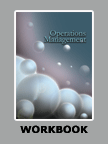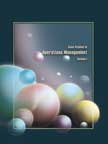SCM and ERP Software Implementation at Nike: From Failure to Success




|
|
ICMR HOME | Case Studies Collection
Case Details:
Case Code : OPER049
Case Length : 18 Pages
Period : 1996 - 2005
Organization : Nike
Pub Date : 2005
Teaching Note : Available
Countries : United States Industry : Footwear & Apparels
To download SCM and ERP Software Implementation at Nike: From Failure to
Success case study
(Case Code: OPER049) click on the button below, and select the case from the list of available cases:

Price:
For delivery in electronic format: Rs. 500;
For delivery through courier (within India): Rs. 500 + Rs. 25 for Shipping & Handling Charges
» Operations Case Studies
» Case Studies Collection
» ICMR HOME
» View Detailed Pricing Info
» How To Order This Case
» Business Case Studies
» Case Studies by Area
» Case Studies by Industry
» Case Studies by Company
Please note:
This case study was compiled from published sources, and is intended to be used as a basis for class discussion. It is not intended to illustrate either effective or ineffective handling of a management situation. Nor is it a primary information source.
|
|
<< Previous
Excerpts
The i2 Debacle
|
In March 1999, Nike decided to implement the first part of its supply chain
strategy; the demand and supply chain planning application software from i2
technologies. This software was intended to help the company match its supply
with demand by mapping out the manufacturing of specific products (Refer Exhibit
I for details of i2 TradeMatrix Plan Solution).
This module had to be linked with other ERP and back-end systems as well. The i2
project replaced an earlier implementation by Manugistics . The project was
supposed to reduce the amount of rubber; canvas and other materials that Nike
needed to produce for its wide range of footwear products with a variety of
sizes and styles.
|
|
Nike also wanted to make sure that it built more shoes that fulfilled
customers demand. The cost of the i2 project was estimated to be around $40
million. Nike went ahead with the deployment using its legacy systems rather
than implementing it as part of its SAP ERP project. The company had
1,20,000 different varieties of products (SKUs) and a wide variety of
information sources...
|
|
Was it Avoidable?
IT experts were surprised by the fact that Nike did not hire a third-party
integrator since the company was replacing an already troublesome older
application with a new supply chain planning application. The company
claimed that i2 software had failed to deliver on the promised functionality
as it delivered erroneous forecasts. However, officials at i2 denied this
allegation and charged Nike of a faulty implementation, which ignored i2
recommendations of minimizing customization to 10-15% of the software and
stage-wise deployment (Refer Exhibit III for details of the implementation
methodology used by i2)... |
The Lessons Learned
After the debacle, Nike realized that implementing
supply-chain management software cannot be taken lightly. The company felt that
a third-party perspective from an integrator's point of view could have exposed
the flaws in the implementation. Experts felt that Nike and i2 should have set
realistic goals since SCM deployments had yet to be proved across all
verticals...
Excerpts Contd...>>
|
|



